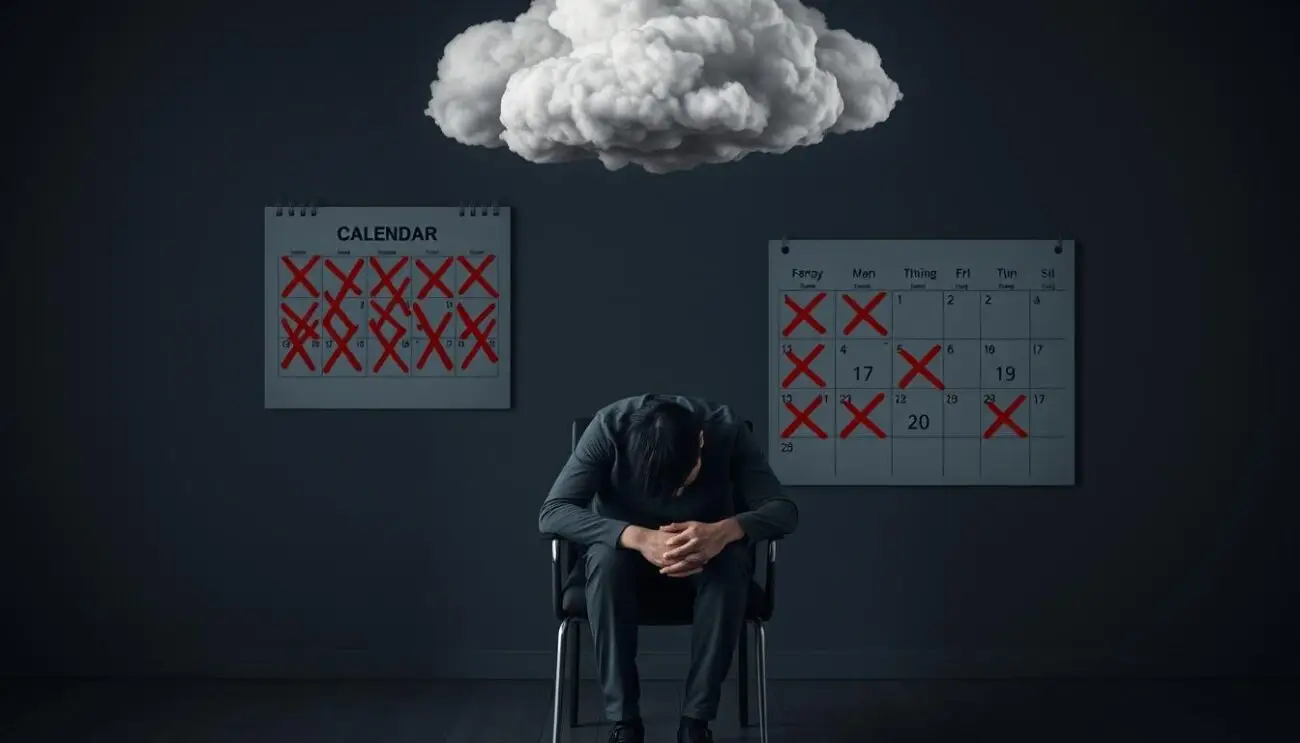depression treatment in Spain
depression treatment in Spain
The journey to overcoming depression in Spain is complex. It requires not just medical help but also lifestyle changes and support. The 2019 Global Burden of Disease report and the OECD’s Health at a Glance show us the importance of a holistic approach to depression management in Spain. This approach is key to the road to recovery from depression.
First steps towards getting better include keeping up social connections and staying active every day. Spain’s healthcare system is now offering more psychological treatments, thanks to the Bismarck and Beveridge models. This means more people can get the depression treatment in Spain they need. Also, schemes like Belgium’s pilot show how affordable therapy sessions can be made.
For severe depression, Spain’s emergency response is vital. It links people to special care and support quickly. For more info on getting help, check here.
Key Takeaways
- Understanding the complexity of depression is vital for effective treatment and management.
- Spain’s healthcare system offers various avenues for receiving psychological support.
- Active lifestyle changes can significantly contribute to the recovery process.
- Emergency assistance through hotlines and services is crucial for severe depression.
- Adequate depression care may benefit from systemic health care innovations and accessible treatments.
Understanding Depression: Symptoms and Diagnosis
In Spain, it’s vital to spot the symptoms of depression and get a right depression diagnosis. This is key to managing and treating it. With more people getting depressed, catching these symptoms early can change how treatment goes. Having good mental health services in Spain helps a lot.
Recognising the Signs of Depression
Depression often brings feelings of sadness, a drop in enjoying activities, changes in weight, sleep issues, tiredness, feeling not good enough, and thoughts of death. If someone has five or more of these for over two weeks, they might be diagnosed with depression. Early spotting aims to start psychological counseling in Spain quickly.
How Healthcare Professionals Diagnose Depression
To diagnose depression, doctors do a full check-up, talk a lot with the patient, and might do lab tests to rule out other conditions. In Spain, they use the DSM-5 criteria for a precise depression diagnosis.
The Role of Psychological Evaluations and Lab Tests
Psychological evaluations use interviews and questionnaires to check how someone feels mentally. They help tell depression apart from other mental health problems. Lab tests might also be done to check for other health issues that could be making someone feel depressed. This makes sure treatment is right on target.
Here’s a table showing how more people are getting depression, which means we need more mental health services in Spain.
| Year | Depression Diagnoses | Increased Prevalence (%) | Common Co-morbid Disorders |
|---|---|---|---|
| 2000 | 4.4% | – | Generalized Anxiety Disorder |
| 2005 | 5.0% | 13.6 | Social Phobia |
| 2010 | 5.7% | 29.5 | Panic Disorder |
| 2013 | 6.19% | 40.9 | Obsessive-Compulsive Disorder |
This rise in depression shows why it’s crucial to focus on depression diagnosis in Spain. We also need to improve our support systems, including psychological counseling and other key mental health services.

Initial Steps to Combat Depression
Depression affects millions worldwide, including thousands in Spain. Starting with simple steps can help. These include making social connections and staying active. These actions boost mood and support overall mental health.
Maintaining Social Contacts to Improve Mood
Building and keeping relationships is key to better emotional health. Regular chats with loved ones or joining support groups helps fight isolation. Such support is essential for those dealing with depression in Spain, offering comfort and help when needed.

Incorporating Physical Activity into Your Routine
Exercise is great for the mind and body. Walking, yoga, or sports can lift your mood and lessen depression symptoms. For those in Spain, staying active is good for both body and mind, helping with mood and energy.
Starting with social support and exercise is a big step towards beating depression in Spain. These steps are important for a full recovery plan. They prepare the way for more in-depth support, including professional help and therapy.
Depression Treatment in Spain: Overview
In Spain, treating depression combines psychiatric care, antidepressant medications, and support systems. People with depression get treatment plans that cover their mental and physical health.
Spanish depression clinics use depression counseling a lot. They offer therapies like cognitive behavioural therapy. This is key for managing depression. Counselling also helps patients learn how to deal with stress and reduce depressive feelings.
Doctors in Spain give antidepressants after a careful check-up. They look at the patient’s health and the type of depression they have. These medicines help balance brain chemicals, easing severe depression symptoms.
The table below shows how Spain deals with depression in different areas. It highlights key facts about depression’s spread and treatment:
| Aspect | Data |
|---|---|
| Antenatal Depression Rates | Up to 23.4% (varies by population) |
| Postpartum Depression Rates | Approximately 15% during the first postpartum year |
| General Depression Rates (2020) | 10% reported suffering from depression |
| Psychiatrists per 100,000 Inhabitants | 10.9 – one of the lowest rates in Europe |
| Funding for Mental Health | 0.6% of GDP, below European standards |
For the best depression treatment, Comfort Keepers Home Health talks about the need for care that fits each person. They focus on a caring environment. This helps patients stick to their treatment and work towards better mental health.
Spain has a strong system for treating depression. But, it’s important to keep improving psychiatric care, counseling, and community support. This will help people with depression even more.
Lifestyle Adjustments for Alleviating Depression
Dealing with depression often means changing your lifestyle and getting medical help. In Spain, people find that a whole approach works best. This includes eating right and taking care of their mental health.
Developing a Healthy Diet to Support Mental Health
Eating well is key to fighting depression in Spain. Studies show that the right foods can boost brain health and mood. Experts recommend eating lots of fruits, veggies, fish, and whole grains.
This diet helps, as shown by research like Garcia-Toro’s. It says that eating right can help alongside traditional treatments for depression.
Establishing a Consistent Routine
Having a set daily plan is important for mental health in Spain. It brings order and reduces the ups and downs that can make depression worse. Eating at regular times, sleeping well, and exercising regularly helps keep your body and mind stable.
Studies, like one by Forsyth, Deane, and Williams, show how helpful this can be. They looked at how lifestyle changes helped people with depression and anxiety.
Changing your lifestyle not only helps with depression but also boosts overall health. This fits with Lifestyle Medicine, which uses changes in environment and behaviour to improve health. As research grows, eating well, exercising, and having a daily routine are seen as key to better mental health in Spain.
| Strategy | Description | Benefits |
|---|---|---|
| Nutritious Diet | Focus on fruits, vegetables, fish, and whole grains | Improves brain function and mood stability |
| Consistent Routine | Regular meal times, sufficient sleep, and planned exercise | Enhances mood, reduces unpredictability in daily life |
By following these ideas, people in Spain can better handle their mental health. This shows how mixing medical help with lifestyle changes works well.
Tackling Depression Head-On
When dealing with overcoming depression in Spain, a mix of strategies is best. It’s key to face fears and situations that make you anxious. This helps stop depression from getting worse. Also, changing how you live, like cutting down on alcohol, is crucial for your mental health and treatment success.
Confronting Fears and Anxiety-Provoking Situations
Starting anxiety and depression treatment in Spain means facing what scares you. This approach weakens the fear and uses therapy like cognitive-behavioural therapy. It offers lasting relief and ways to cope.
Managing Alcohol Intake to Avoid Worsening Symptoms
In Europe, Spaniards often drink a lot in social settings, which can be risky for those with depression. Cutting down on alcohol is key in depression management in Spain. It helps avoid making depression worse and supports a healthier lifestyle for recovery.
Here are some important facts that show why we need strong ways to manage depression:
| Condition | Statistic | Impact |
|---|---|---|
| Substance Use & Depression | 21% of people with a substance use disorder experience depression | Highlights the urgency in addressing dual diagnoses |
| Depression & Chronic Illness | Up to twice as likely in individuals with heart disease or cancer | Demands more integrated care approaches |
| Transgender Individuals | Risk of depression nearly four times higher | Signifies the need for tailored mental health resources |
| Perinatal Depression in Spain | Estimated prevalence of about 15% during the first year postpartum | Urges for compulsory screening protocols and specialised training |
This deep understanding helps us plan and act better against depression in Spain. It makes sure we meet the needs of the community and each person’s health.
Seeking Professional Mental Health Support
In Spain, many people face mental health issues, making it key to get professional help. A lot of people worry about how long mental health problems like depression and anxiety can affect them. This section looks at the support systems for those needing therapy for depression in Spain. It includes psychologists, counseling, and mental health services.
The Importance of Therapy for Depression in Spain
Many in Spain have faced mental health issues, making therapy for depression crucial. Working with licensed psychologists can help understand and manage depression. It’s not just about feeling better, but also learning skills to help in the future.
Access to Spanish Depression Clinics and Counselling
Depression clinics and counselling offer vital support to those with mental health issues. These services are key in a time when mental health problems are increasing. They aim to help all kinds of people across Spain, making sure everyone gets the support they need.
| Mental Health Indicator | Spain 2020 Statistic | Comments |
|---|---|---|
| Population suffering from mental health conditions | 22% | Shows the need for better mental health services |
| Anxiety and depression reports | 14% and 10% respectively | Points out the big need for certain types of therapy |
| Funding for mental health | 0.6% of GDP | This is less than what Europe recommends, so more money is needed |
| Psychiatrists per 100,000 people | 10.9 | This is one of the lowest rates in Europe, showing a need for more experts |
| Suicide rate per 100,000 people | 7.6 | It’s lower than the EU average, but still a big worry for mental health plans |
Spain really needs strong mental health services. With a mix of therapy, psychologists, and counselling, Spain can improve its mental health support. This offers hope and help to those who need it.
Understanding and Choosing Antidepressant Medications
Choosing the right antidepressant medications is a key step in Spain, where depression is a big concern. The trend towards better medication management in Spain means it’s vital to know about different antidepressants. This knowledge is crucial for both doctors and patients.
SSRIs and Their Role in Treating Depression
SSRIs are often the first choice for treating depression because they are safe and work well. In Spain, the use of SSRIs jumped by 200% from 2000 to 2013. This shows they are widely accepted for treating depression. Doctors and mental health services in Spain prefer SSRIs because they have fewer side effects than older antidepressants.
Considering the Side Effects and Risks of Antidepressants
SSRIs are generally safe, but they can have side effects like nausea, sleep problems, and issues with sex. It’s important to carefully consider these side effects when choosing antidepressants in Spain. Treatment plans should be tailored to each patient’s needs. The safety of antidepressants must be closely monitored and adjusted as needed.
When prescribing antidepressants in Spain, doctors look at more than just depression. They consider overall health, potential drug interactions, and long-term well-being.
| Year | Antidepressant Use (%) | SSRI Usage |
|---|---|---|
| 2015 | 7.64 | Commonly prescribed |
| 2018 | 9.26 | Increased prescription rates |
| Gender Demographics | Women: 12.12%, Men: 4.87% | Higher in women |
Healthcare professionals in Spain are working to improve treatment for mental health. They combine clinical knowledge with a focus on patients to make antidepressants more effective. Choosing the right antidepressant is a key part of caring for mental health. It requires both scientific knowledge and empathy.
Exploring Therapy Options for Depression
Spain is stepping up its game in mental health care, especially for depression. Cognitive behavioral therapy in Spain and psychotherapy for depression in Spain are becoming more popular. They are supported by strong evidence and a growing need for help.
There are many therapy options out there that can help with depression. We’ll look at some of the best ones changing the face of psychological counseling in Spain.
Benefits of Cognitive Behavioral Therapy
Cognitive Behavioral Therapy (CBT) is a key part of mental health support in Spain. It helps change bad feelings and actions by changing negative thoughts. Studies show it’s great at treating depression by making thoughts more positive.
Psychotherapy and Its Effectiveness for Depression
Psychotherapy gives people a safe space to talk about their feelings. It helps them find out why they’re depressed and how to get better. This kind of therapy is deep and helps people heal.
According to the World Health Organization (WHO), over 300 million people worldwide deal with depression. This makes it more important than ever to have good therapy options. Spain is working hard to make therapies like CBT and psychotherapy part of regular health care.
These therapies are also shown to cut down on the need for antidepressant drugs. This shows a move towards a healthier way of dealing with mental health issues.
As we learn more about depression, the importance of psychotherapy for depression in Spain and other therapies will only grow. People looking for help in Spain should consider these proven, effective options. They offer not just quick relief but also a lasting way to get better.
Alternative Approaches to Depression Treatment
In Spain, exploring holistic depression treatment and alternative therapies for depression is key. These options are tailored for each person, helping to support traditional treatments. Spain leads in using these therapies, focusing on mental health without just drugs.
Alternative therapies for depression in Spain are personal and holistic. They include mindfulness, meditation, yoga, and acupuncture. These methods help with depression symptoms and aim to balance life. They encourage patients to be active in their recovery, building a strong mental health foundation.
As mental health talks grow, research looks into many therapy options in Spain. These options mix traditional and new methods. This mix might make treatments more effective and keep patients more involved.
| Therapy Options | Key Characteristics | Benefits |
|---|---|---|
| Mindfulness and Meditation | Focused on awareness and stress reduction | Enhances emotional regulation and decreases stress levels |
| Yoga | Combines physical postures, meditation, and breathing exercises | Improves mood, reduces anxiety and depressive symptoms |
| Acupuncture | Traditional Chinese medicine technique involving needle insertion | Stimulates nervous system, offers relief from depressive symptoms |
More people are now choosing holistic and alternative treatments over just medication. This change shows a wider move towards therapy options in Spain. These therapies don’t just help with symptoms. They also help build a healthier lifestyle for those with depression.
The Significance of Support Groups in Spain
In Spain, support groups for depression are key in treating mental health. They give people a place to share their stories and feel less alone. These groups are vital for recovery, especially in fighting the stigma around mental health.
Depression support groups in Spain help reduce the stigma people face. They offer a safe space to talk openly about struggles without fear of judgment. This is crucial in a society where mental health is not always understood well.
Being part of mental health support in Spain helps people emotionally and by sharing information. Members talk about how to cope, find therapy, and use local health services. This info is very helpful for those new to mental health care.
| Stigma Factors | Impact on Individuals | Role of Support Groups |
|---|---|---|
| Societal Prejudice | Isolation and Misunderstanding | Provides acceptance and understanding |
| Media Representation | Propagation of Stereotypes | Offers truthful narratives and counters misinformation |
| Professional Stigma | Barrier to Seeking Help | Encourages dialogue and reduces healthcare aversion |
| Family Attitudes | Internal Conflict and Stress | Creates an external support network |
Support groups for depression in Spain tackle the emotional and social sides of mental health issues. They work to change societal views that add to the stigma. This helps improve mental health outcomes by building a supportive community.
Having depression support groups in Spain in cities and towns is key to public health efforts. They add to medical care by offering ongoing support for those with depression. These groups are vital in a society where mental health still faces a lot of stigma, as studies show.
In short, the growth and support of mental health support in Spain are crucial. They help fight wrong beliefs and discrimination against depression. This creates a network that supports recovery and brings people together.
Specialised Care: Depression Treatment for Specific Groups
In Spain, mental health care focuses on different types of depression. This includes special care for postpartum depression and seasonal affective disorder. These conditions need expert treatment.
Addressing Postpartum Depression
Spain offers special help for new mothers with postpartum depression. This care includes doctors, psychologists, and nurses who work together. They use a mix of medicine, counselling, and group therapy.
New mothers can talk and share in these groups. This helps them feel supported during a tough time.
Seasonal Affective Disorder: Unique Challenges and Solutions
Seasonal affective disorder is a big challenge in Spain because of its changing weather. Doctors use light therapy and cognitive behavioural therapy. They plan treatments that match the seasons.
This approach is based on the latest mental health strategy in Spain. Experts from different fields helped create this strategy. It aims to improve mental health services.
| Condition | Prevalence in Spain | Annual Healthcare Cost |
|---|---|---|
| Postpartum Depression | Est. 10-15% of new mothers | Specialised programs funded by NHS |
| Seasonal Affective Disorder | Varies regionally | Cost-effective light therapy included |
Spain is taking a strong step towards better mental health. This includes focusing on depression in all its forms. By doing so, Spain is making sure treatment is tailored to each patient and benefits society as a whole.
Emergency Response to Severe Depression
Spain has a strong emergency mental health system for severe depression. It acts fast to lower the risk of harm or suicide. This shows how vital suicide prevention is in Spain.
Immediate Resources and Hotlines
For those in crisis, Spain offers hotlines and urgent psychiatric care. These services are key for quick support and help. They guide people to the right care steps.
Understanding When to Seek Urgent Care
Knowing when to get urgent psychiatric care is key in Spain. Signs like a sudden worsening of symptoms or suicidal thoughts mean you need help now.
Spain trains first responders and healthcare workers to spot psychiatric emergencies. They act fast to help those in need.
| Location | Decrease in General Emergencies | Decrease in Psychiatric Emergencies | Proportion of Psychiatric Emergencies |
|---|---|---|---|
| El Bierzo, Spain | 36.19% | 27.66% | 4.03% |
| Global Impact | N/A | N/A | Stigmatization and violence increase |
| Principality of Asturias | N/A | Major decrease in depression cases | 17.4% aged 74+ diagnosed with depression |
| Sabadell, Barcelona | N/A | No significant relation to antidepressant treatment | 25.93% admissions in elderly over 65 |
These figures show the ongoing need for better suicide prevention and mental health care. This is especially true during tough times like the pandemic.
Depression Recovery and Management Strategies
In Spain, beating depression is a journey that needs a careful plan. It’s not just about feeling better, but also about doing daily tasks again. Studies show 86% of people focus on both aspects of recovery. Sadly, 83.4% of experts say people often can’t work for more than four months because of depression. This is mainly because 75% of people find it hard to leave work due to their symptoms.
So, fighting depression in Spain means more than just seeing a doctor. It’s about having a strong support system too.
Setting Realistic Goals and Expectations
The first step in overcoming depression in Spain is setting goals you can reach. Doctors often suggest taking small steps towards getting better. This is because 62% of patients still feel some symptoms after treatment.
About two-thirds of doctors might increase the medicine if you’re not fully better. Another 72.7% might suggest trying a different type of antidepressant. Half of them would also recommend therapy along with medicine if symptoms don’t go away.
The Journey to Recovery: Patience and Perseverance
Getting better from depression takes time and strength. In Spain, dealing with depression means following a treatment plan that changes over time. Guidelines like those from NICE suggest different treatments for different people, especially for those with hard-to-treat depression.
For people with this type of depression, there’s a 40% chance of getting better in ten years. This shows how important it is to keep going with treatment. Depression affects not just the person but also their family and society. So, fighting depression needs new ways of helping, support from others, and a lot of time and effort.


